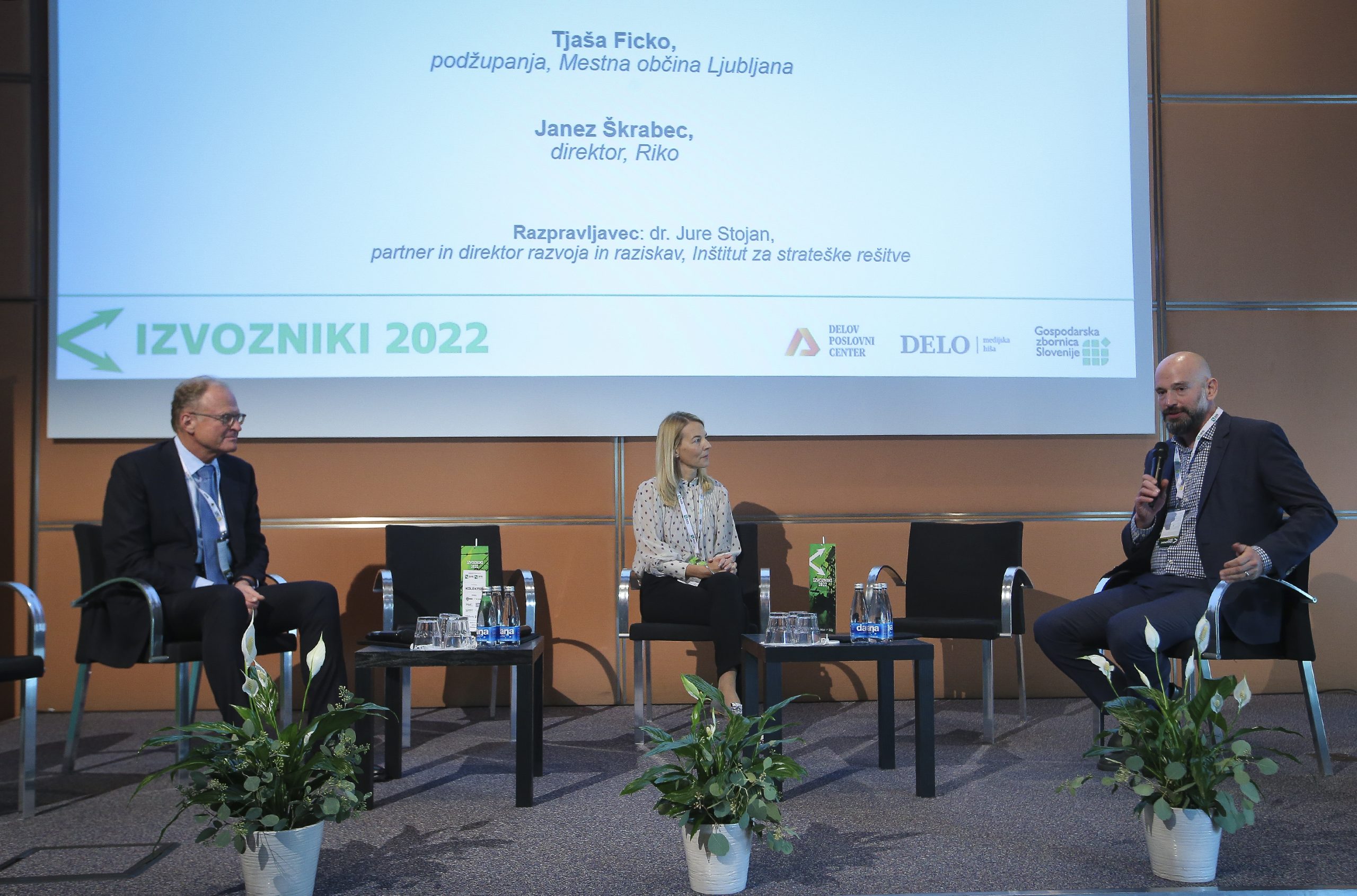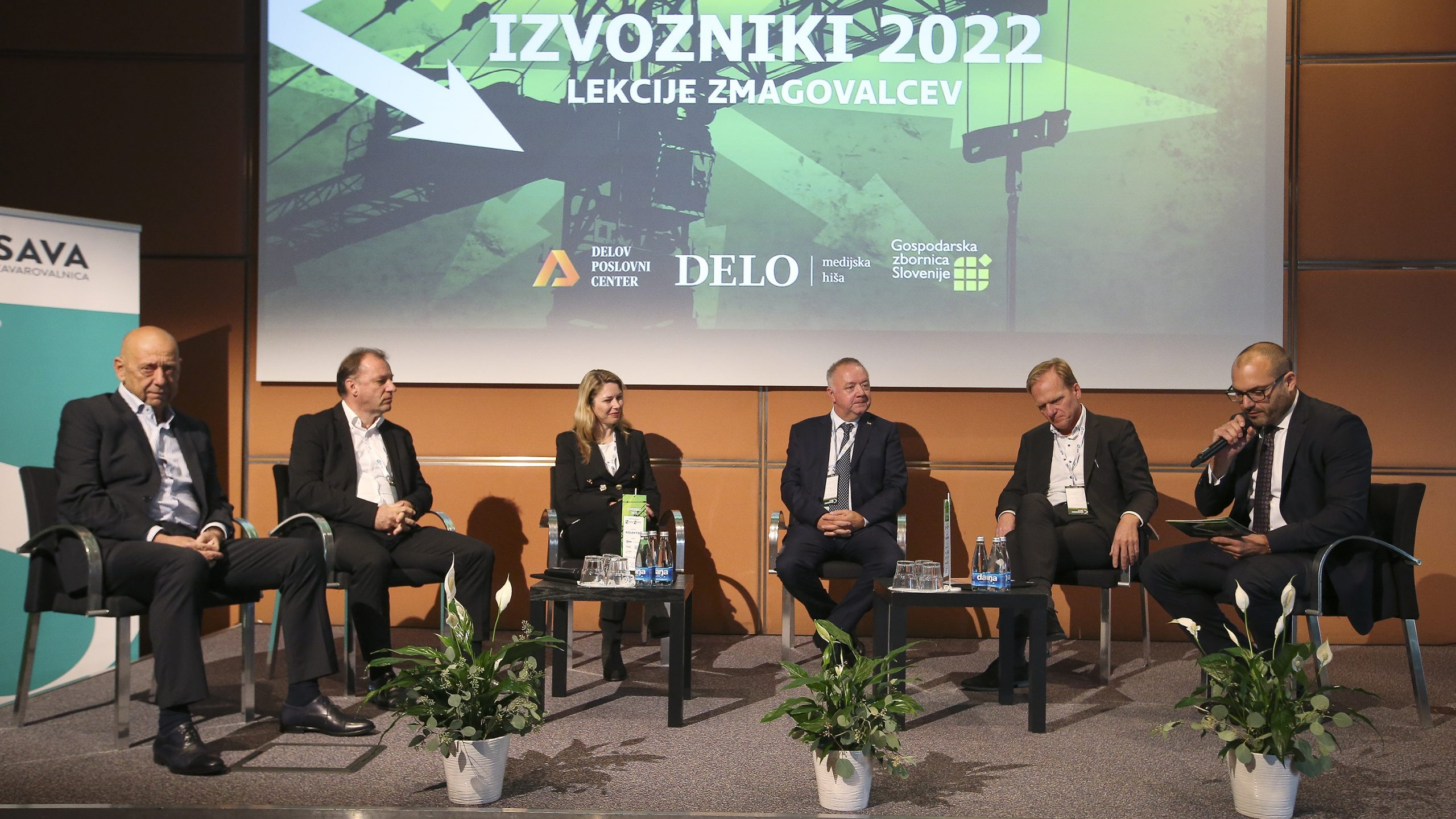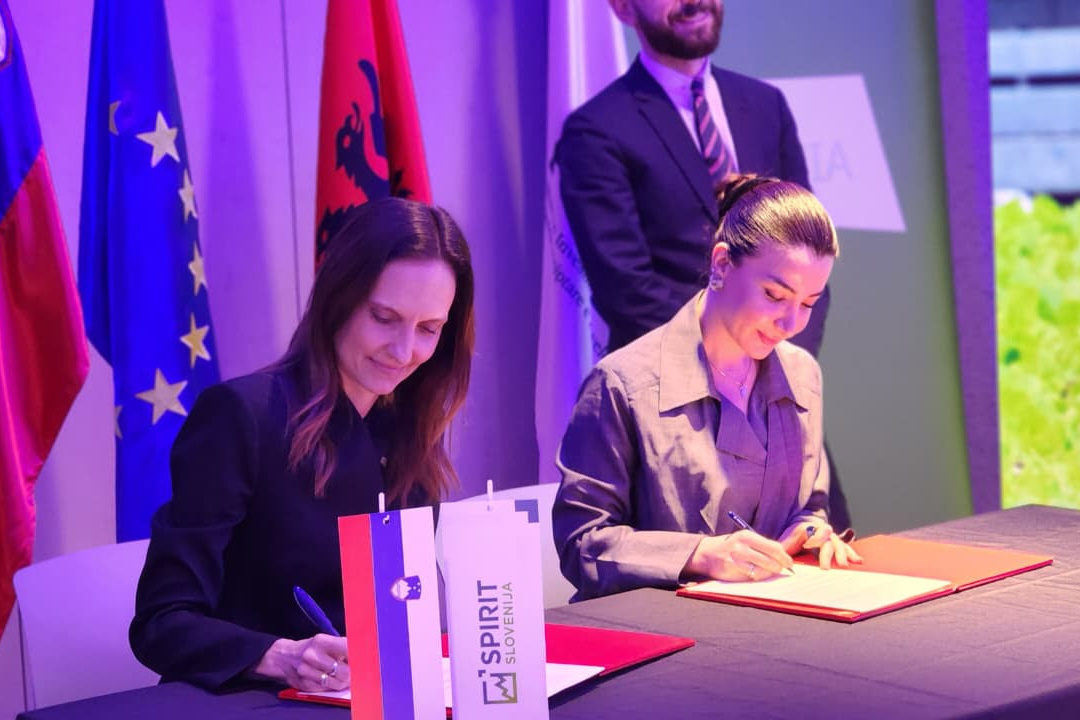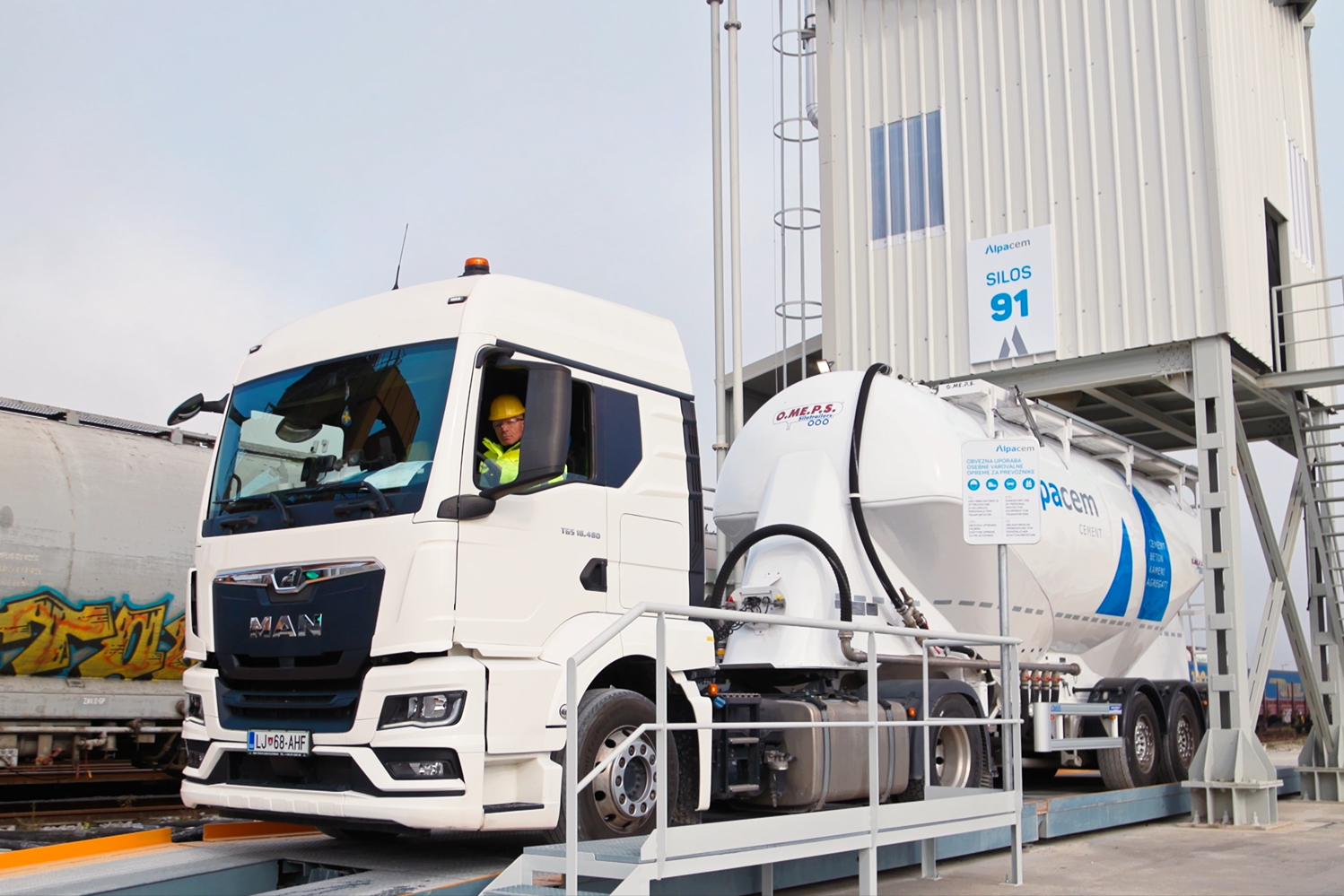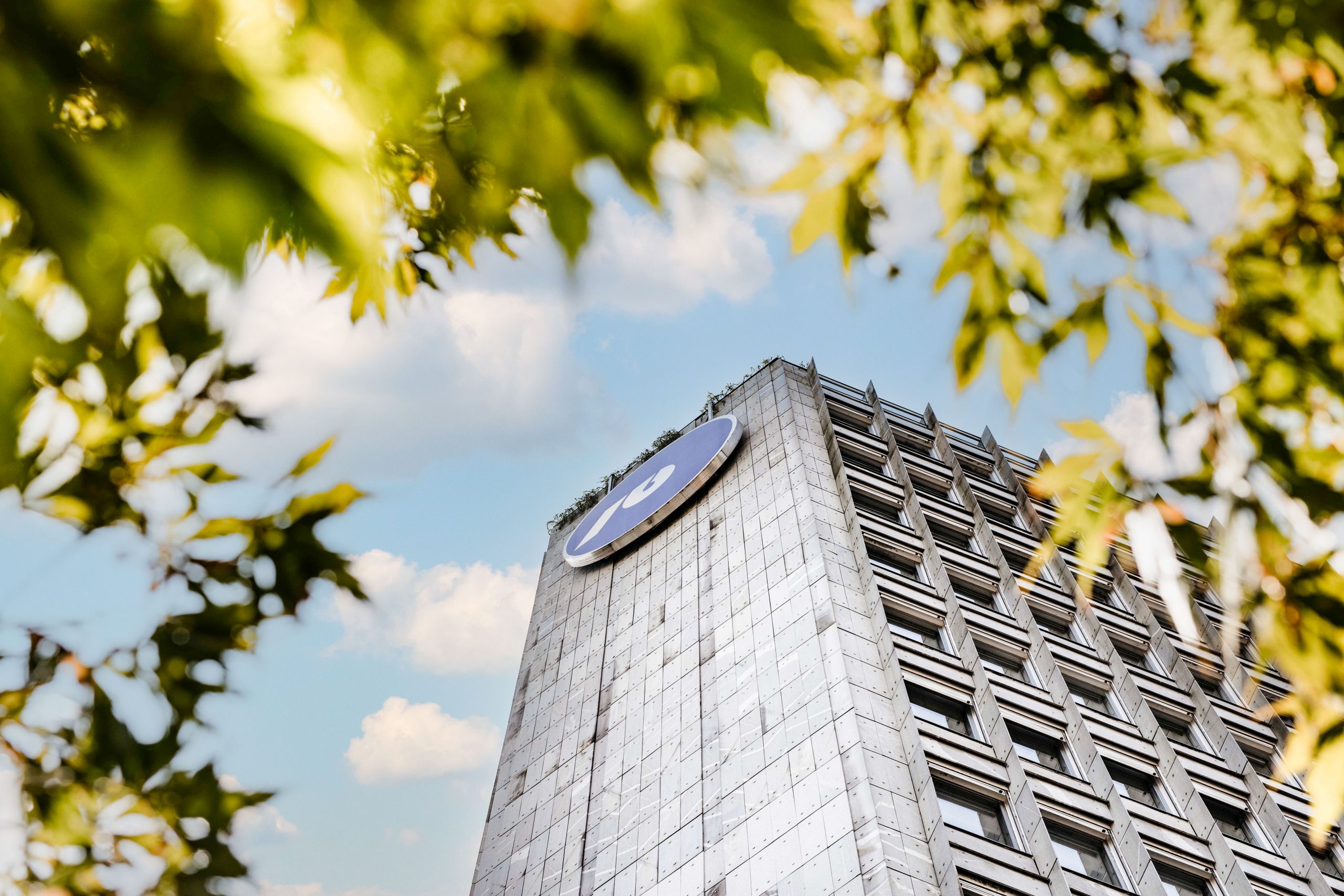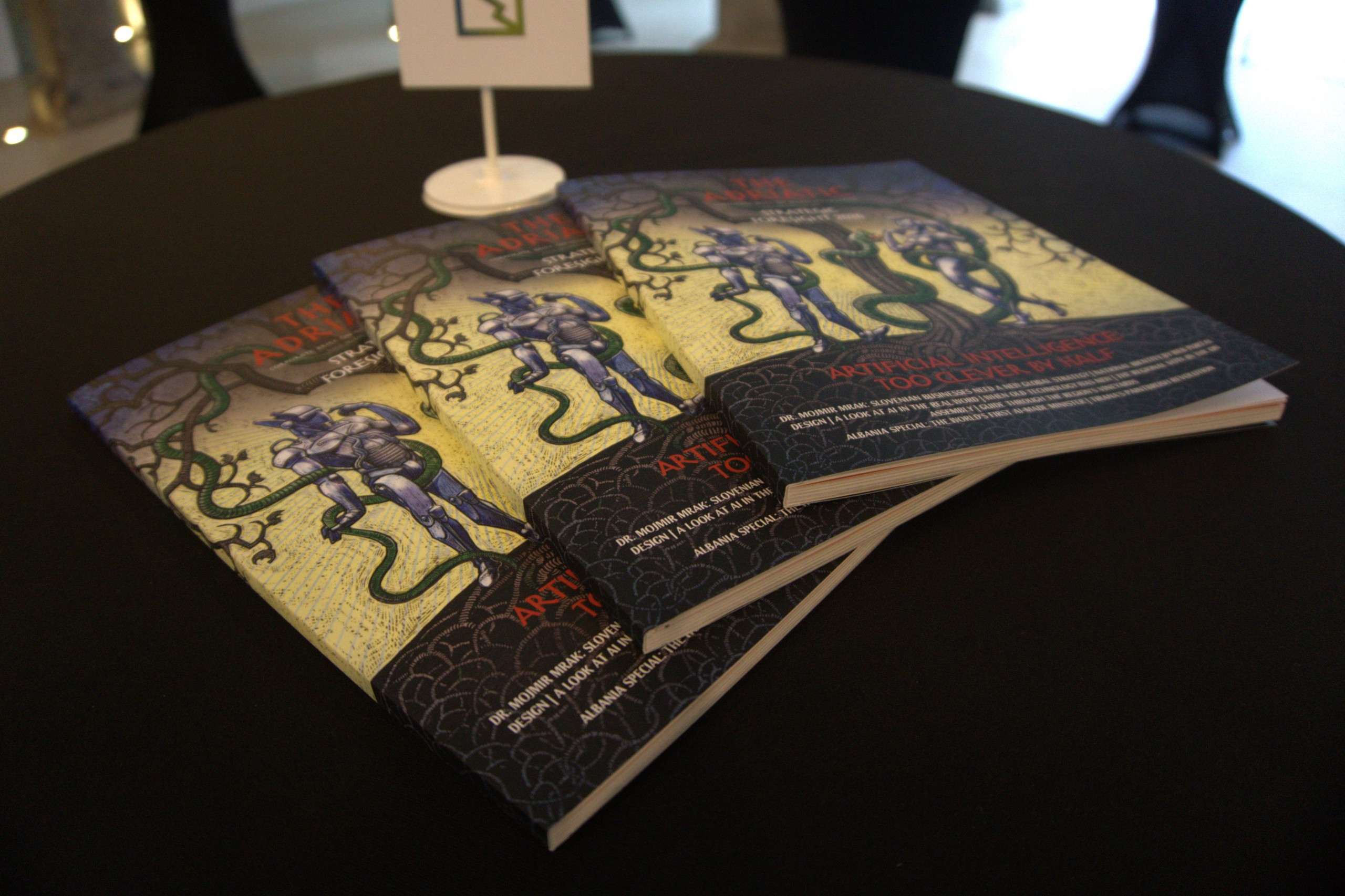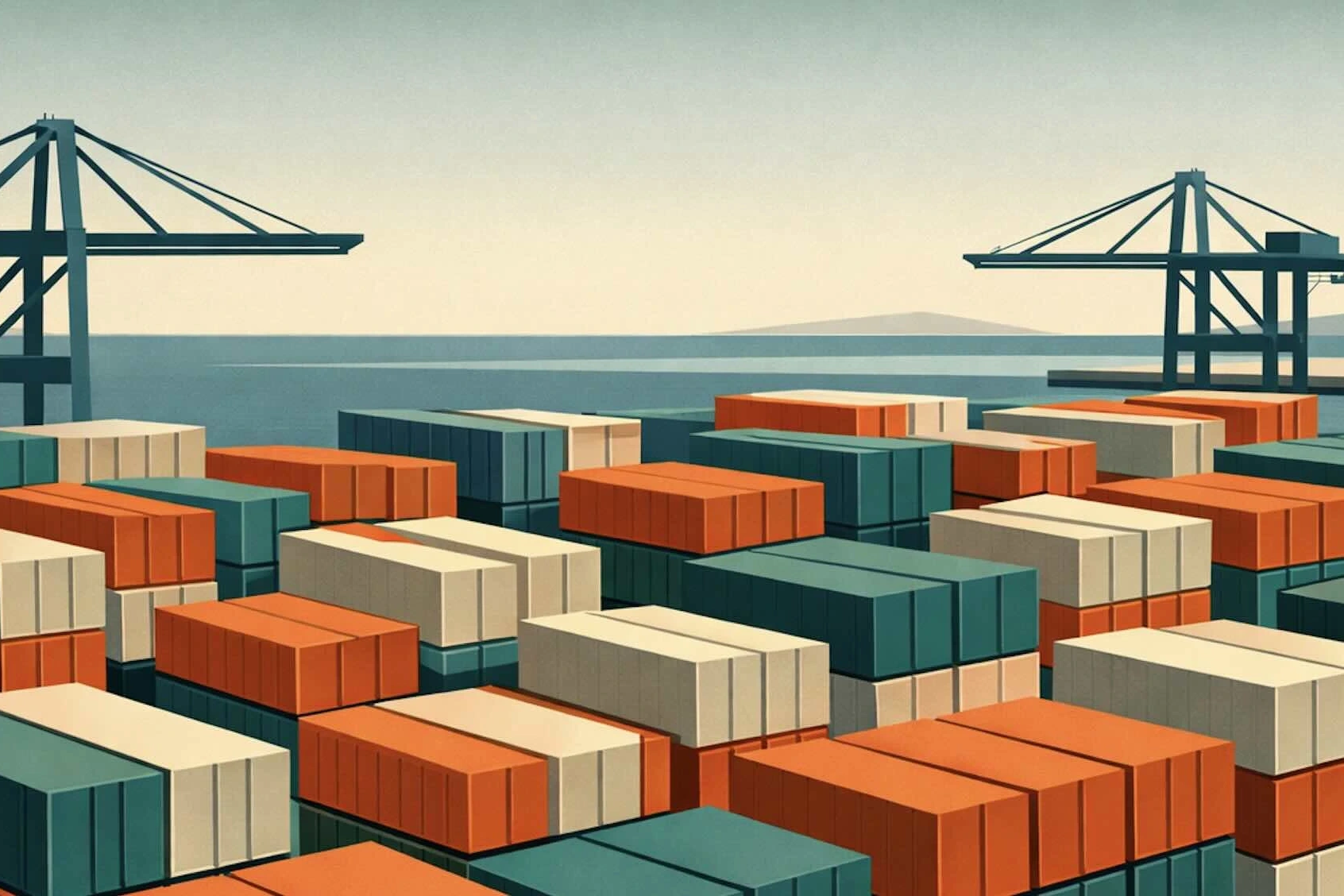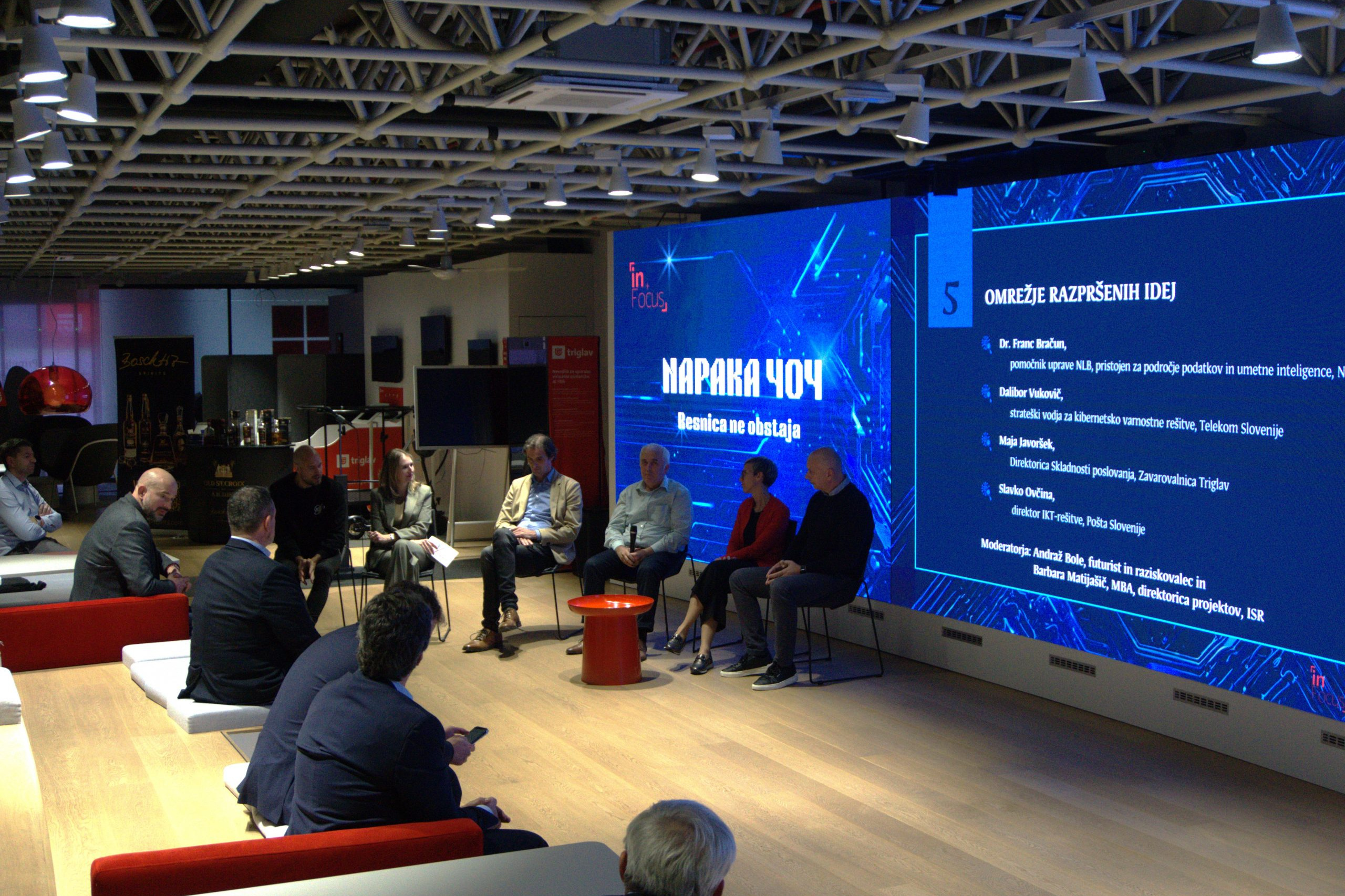Exporters 2022
EXPORTERS 2022 business conference
Adriatic team
Ljubljana, September 28, 2022 - Labor Business Exporters 2022: Lessons from the Winners.The business conference was opened with welcome speeches given by Bojan Budja, Editor-in-Chief of Delo Media House, Mag Aleš Cantarutti, General Director of the Chamber of Commerce of Slovenia, Dr Jure Stojan, Director of Development and Research at the Institute for Strategic Solutions and Matjaž Han, Minister of Economic Development and Technology.
The conference focused on risk management during one of the most turbulent and uncertain periods in recent history. Directors of the most successful Slovenian companies and foreign guests from the sphere of economy, finance, diplomatic relations and associates from neighbouring countries discussed ways of managing risk during the three recent global shocks. The question was asked, are there opportunities for the Slovenian economy in this rapidly changing environment? Marjan Drmota, Director of Kolektor Mobility emphasised that if electricity prices continue to rise, companies will only have to work harder to cover their costs. Tibor Šimonka, Vice President of Sij and President of the Chamber of Commerce of Slovenia, added that the high cost of energy could also cripple the Sij group, and that Slovenia is now importing energy from countries that have cheaper energy sources, but are significantly worse in terms of carbon emissions than suppliers from the EU. He was also convinced that if the conditions regarding energy output change significantly, the Slovenian economy will have big problems and the forecasted results of Slovenian export companies will no longer be realistic.
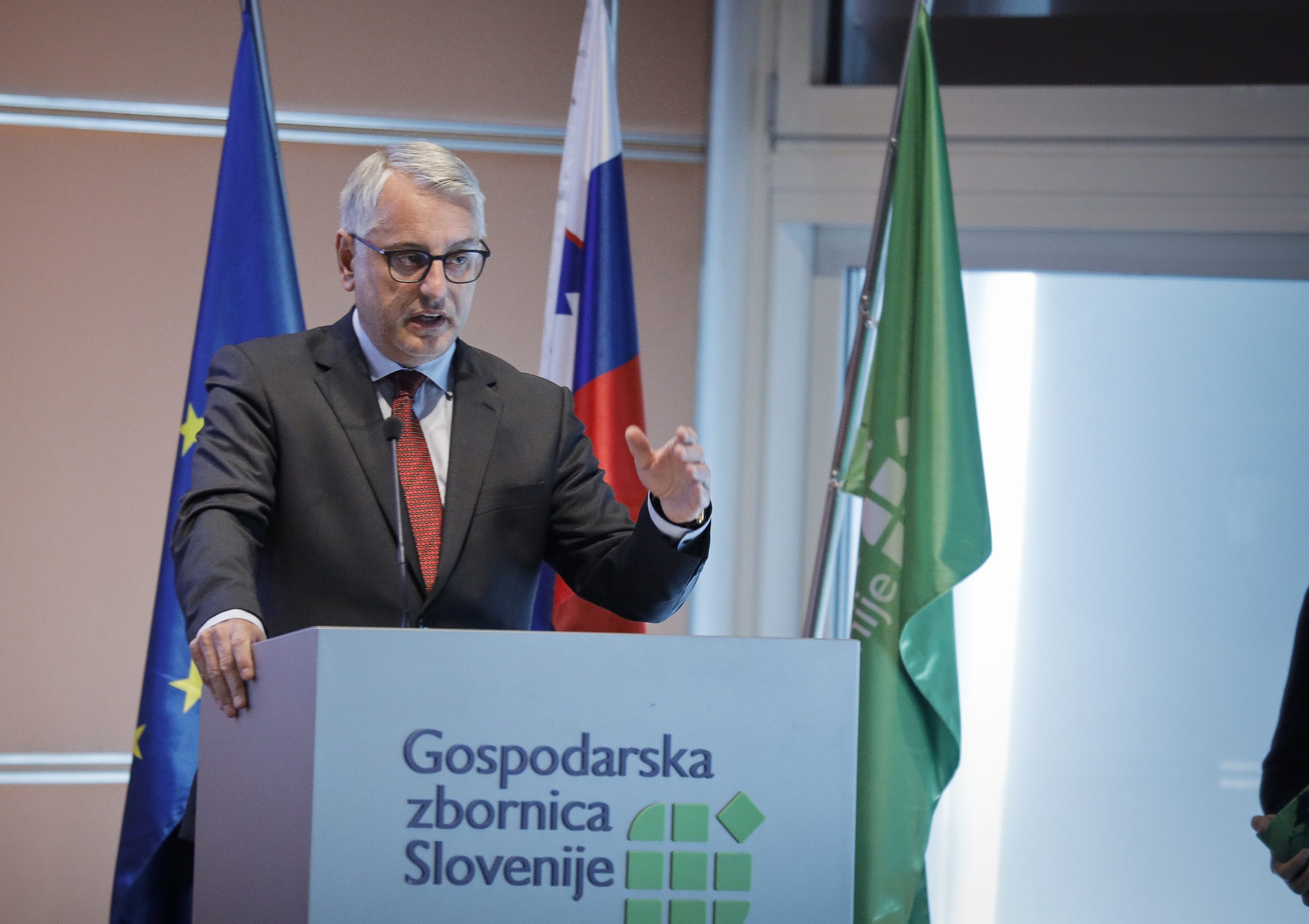
In the long term, dependence on non-EU suppliers will diminish.
Dr Alexander-Nikolai Sandkamp, Professor of Economics at the University of Kiel and a researcher at the Kiel Institute for the World Economy, noted that the economy is currently facing two major challenges, the pandemic and the war in Ukraine. He argued that giving up dependence on Russia is feasible for the EU. The scenarios prepared at the university show that if dependence on business with Russia were to be broken, imports and exports would decrease, and production would move to other locations outside of the EU. In addition, the division of work and specific skills would decrease, while production costs for semi-finished products would grow. As a result, reducing dependence on Russia could work, but exports would suffer, and Slovenia, as an export-oriented economy, would certainly feel the pain, he said. They should strengthen their resilience by connecting with several different suppliers in different regions, with enhanced storage strategies and recycling, which would reduce raw material dependance. The EU must strategically plan its reserves and strengthen international relations as well as removing trade barriers, Professor Sandkamp stated.
The Anti-crisis Recipe: Big Projects that Keep the Momentum Going.
How to Manage Risks During Three Global Shocks was moderated by Dr Slobodan Šešum from the Ministry of Foreign Affairs.
Nuša Pavlinjek, Director of the company Roto, explained that Roto is overcoming broken supply chains by recycling, with as much as 70 percent of their products containing recycled materials. They have new products prepared in advance for the market, which enables them to respond and adapt quickly to new conditions. They have also increased product diversification by cooperating with different industries and regions. They are increasingly visible on the African market, where they are already doing business in 11 countries.
Julijan Fortunat is a Strategic Consultant in the Wietersdorfer Group, which is the majority shareholder of Salonita Anhovo, a construction company that is energy intensive. He said that the petrochemical products used in construction processes cause them headaches. Their supplies have been greatly diminished and they need to find new solutions to the crisis by themselves. The reduced consumption of electricity will have dramatic impact on their business, and the strategy to prevent bankruptcy will be dependent on the company’s large construction projects having a stabilising effect, according to Julijan Fortunat.
The President of the Board of Sava Re, Marko Jazbec, said that the year 2022 has already brought a number of new problems, which correspond to pre-pandemic levels and high inflation. The insurance industry is not among the winners of this period, many insurance products are no longer attractive. The US, for example, will fight inflation by slowing down the economy, which will include a recession, which is more daring than what the European Central Bank is doing, Marko Jazbec stated.
Marjan Drmota, Director of the company Kolektor Mobility, which is part of the Kolektor Group, notes that although the characteristics of the crises are similar, the world is constantly changing, so past experience cannot just be simply mapped onto the present day. It is always necessary to look for new and innovative solutions, he emphasised. In the future, the impact of energy on industries could be increasingly problematic. At Kolektor Mobility, energy accounts for 2.5 percent of total costs, which means 10 million euros per year of the company’s costs. The price of energy could double or triple, but if it quadruples, it means that electricity costs will negate any profit whatsoever, M. Drmota warned.
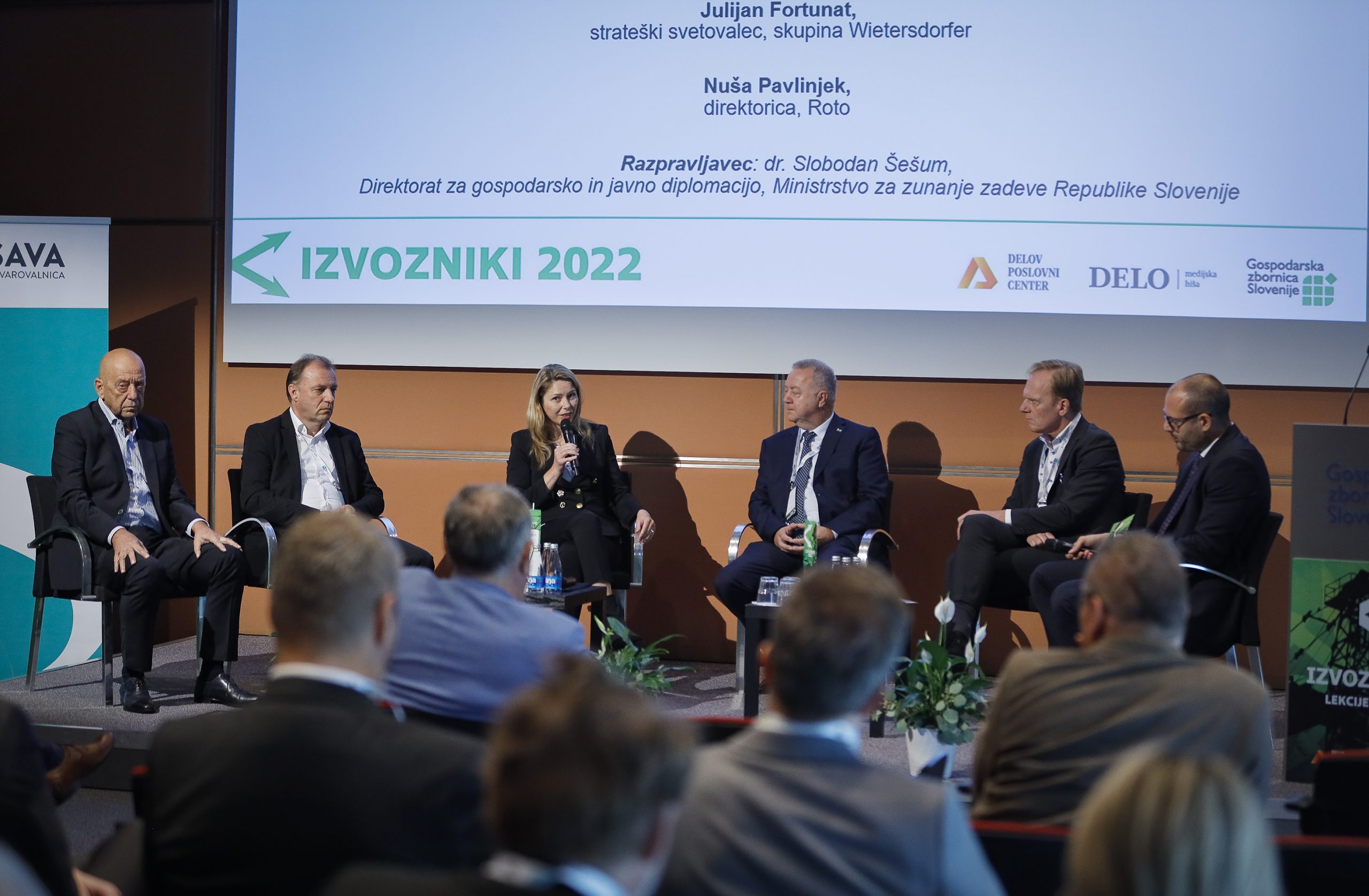
Deglobalization is not only a Threat, it is also an Opportunity.
The data shows that Slovenia is strengthening the added value of exports, the key to improved export results is the trade and service exchange of our country within the EU area, said Bojan Ivanc, Chief Economist of the Chamber of Commerce and Industry. In 10 years, Slovenia has increased exports to EU countries by around 15 billion euros, this year is estimated to peak at 33 billion euros.
According to Rok Capl, Acting Director of the public agency, SPIRIT Slovenia, an important factor for local companies is assistance in finding new foreign markets. At Spirit, they can promote and strengthen the visibility of Slovenian companies, as companies that can offer foreign partners alternatives to achieve business goals.
Saša Keleman, Executive Director of SID Banka, which supports Slovenian exporters with financial tools, emphasised the fragility of today’s global equilibrium, highlighting the prices of energy products, the availability of raw materials and inflation. All of these factors bring advantages and opportunities as well as disadvantages to small businesses, and at the same time, deglobalization is taking place, which again brings forth both opportunities and threats.
Eva-Ricarda Willems, Deputy Ambassador and Head of the Economic Department at the German Embassy, presented a forecast predicting that the economic situation in Germany in the coming period, will be analogous to that of the other European countries. The economic conditions in Slovenia and Germany are similar, which is the result of the countries strong connection in production and development.
According to Serenella Marzoli, Director of the Agency for the Promotion and Internationalisation of Italian Companies at the Department of Economic Promotion of the Italian Embassy, stated that Slovenia is an important partner of Italy. Slovenia usually helps between 300 and 350 Italian companies interested in doing business with Slovenia. Cooperation between the two countries did not stop even during the pandemic, the reason being proximity, historical ties and the good business environment in Slovenia, in addition to research and development and a circular economic. An important anti-crisis approach for Slovenia could also be a blue economy, which is relevant mainly for maritime countries, but could also apply to Slovenia.
Alenka Hudek, Minister Plenipotentiary at the Embassy of the Republic of Croatia, said that entrepreneurs from Slovenia and Croatia know each other and cooperate well in business. It is expected that the business relationship will improve further with Croatia’s entry into the Euro area. She also sees opportunities in the field of infrastructure and energy.
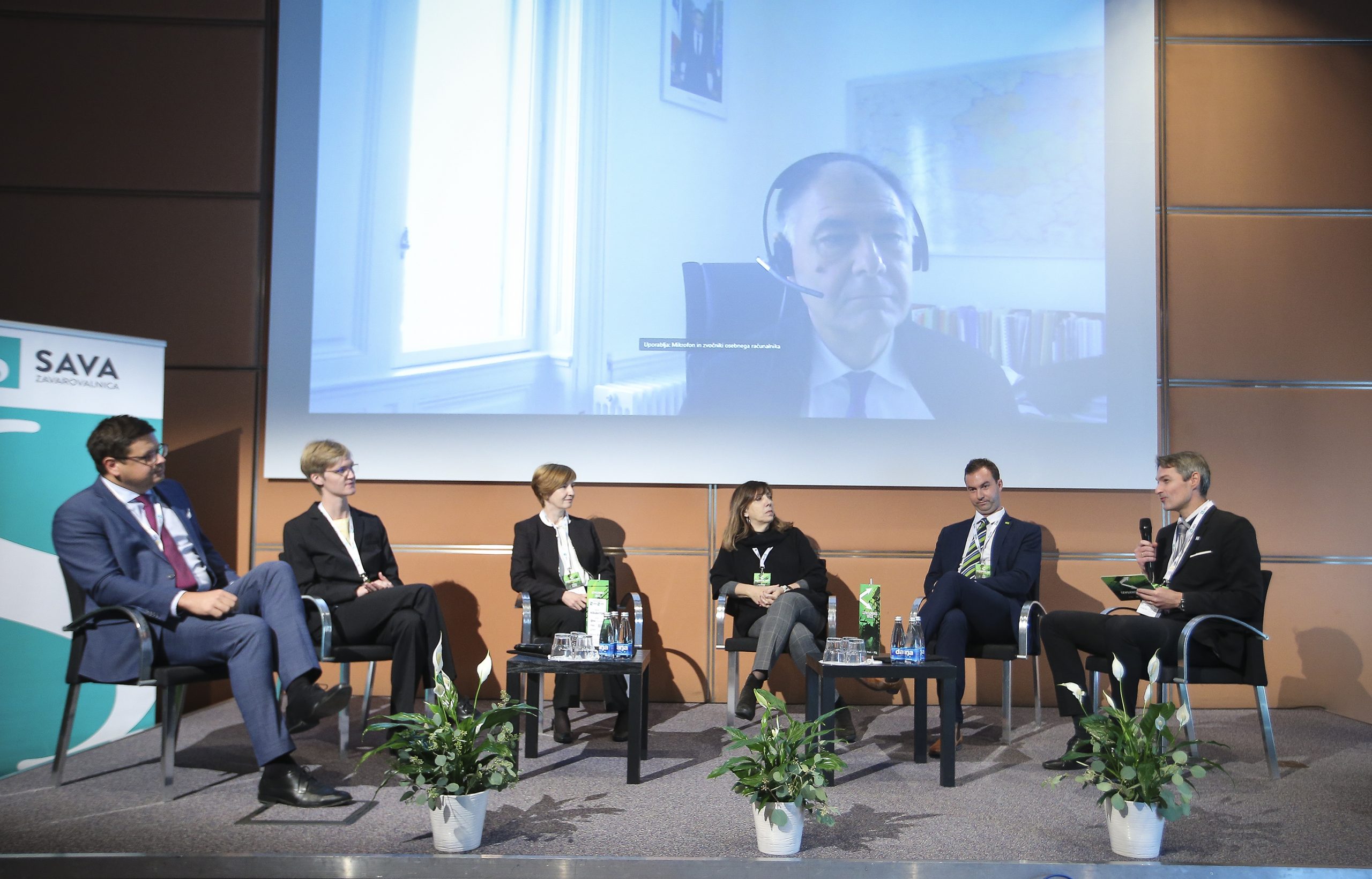
About Proper Business Etiquette.
The shock of recent years have completely changed the world and what is permitted to do or say, and what is not. In the final part of the event, Dr Jure Stojan, Deputy Mayor of the Municipality of Ljubljana, Tjaša Ficko and Janez Škrabec, Director of the company Riko pointed out behaviour, that, in their opinion, do not belong in the business world, but that people revert to more and more these days. For example, men wearing suits without a tie, being unpunctual, contentious topics are amongst the many mines in todays business world. There are rules that should not change and must be preserved. It is also important to remember that when you compete in the business world, you should treat your fellow human beings with courtesy and respect, as it is a small world and you may encounter these people again, in very different circumstances. Therefore, it’s very important to build and maintain good relations at all times. Tjaša Ficko also emphasised that when travelling abroad, one must adapt to local rules or as the saying goes, “When in Rome, do as the Romans do.”. Janez Škrabec added that it is important to be curious and interested, but not judgemental and to be free of preconceptions and prejudices because people can feel the negative energy.
